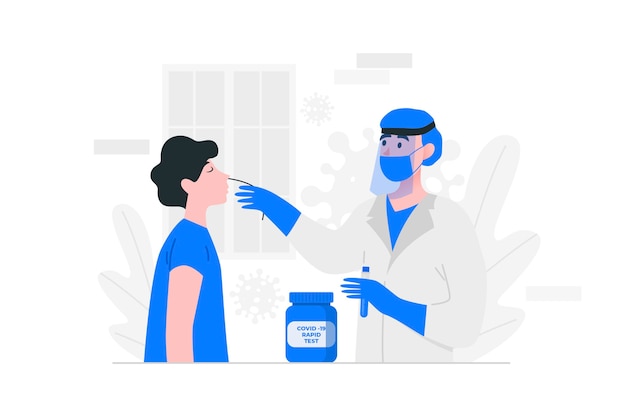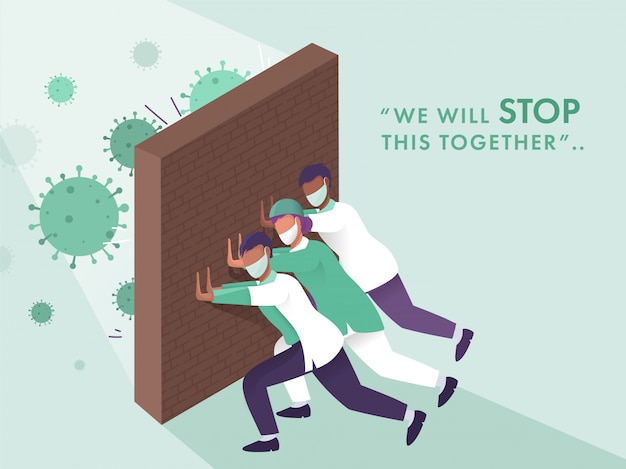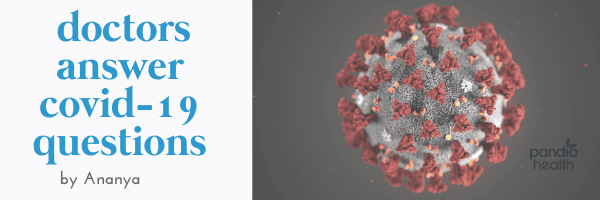Medically reviewed by Sophia Yen, MD, MPH – Written by Pandia Health Editorial Team
In this collaboration interview, Pandia Health sat down with its CEO and Co-Founder, Dr. Sophia Yen, and Dr. Weiss, the Director and Co-Founder of Village Doctor, to discuss popular questions regarding the coronavirus.
Village Doctor is an organization made up of a dedicated group of physicians who work with patients of all ages, from infants to the elderly. This way, everyone in the family can receive the best care possible on one centralized platform. With specialized services such as adolescent medicine, sports medicine, and internal medicine, Village Doctor prides its quality of care over all else and is ready to serve you and your family today.
Dr. Sophia Yen, a graduate of the Massachusetts Institute of Technology, UC San Francisco (UCSF), and UC Berkeley, currently serves as a clinical associate professor at Stanford Medical School. She likes to say that she “eats, breathes, and prescribes birth control!”
Dr. Weiss graduated from Stanford before attending UCSF for medical school and subsequently, an emergency medicine residency at UC Los Angeles. He founded the Village Doctor to “put the wow back into healthcare experience by treasuring the moments with patients and putting wellness first.”
Read along for a recap of Dr. Yen and Dr. Weiss’ insightful thoughts on the coronavirus pandemic, as well as ways to stay safe and healthy during this time. Doctors at the Village Doctor and Pandia Health are here to support you. Be sure to sign up for Pandia Health to learn more about how you can benefit from free birth control delivery right to your doorstep.
If I test positive for COVID-19, can I get it again? Can I continue to spread it?
Dr. Weiss said that testing positive can mean different things. The classic nasal swab test looks for viruses in your nose and there is also a separate blood test that tests for antibodies and immunity to the virus. Dr. Yen mentioned that it is really rare to get COVID-19 a second time; if your body fights the virus correctly and has a well-functioning immune system, you should not get the virus again.
Dr. Yen emphasized the importance of not spreading the virus to begin with. Be sure to wash your hands, wear your masks, and do your best to stop the transmission of the virus! Even without symptoms, one can have the virus and spread it to those who are more susceptible to severe symptoms such as those over the age of 50 and those with pre-existing symptoms.
When it comes to testing, Dr. Yen highly recommended getting tested if you are experiencing symptoms. However, frequent testing is not a badge that allows you to take part in risky behavior and false negatives do exist. Dr. Weiss suggested getting tested every two weeks for those who work in occupations that put them at higher risk. He also emphasized that a negative test is not equal to an immunity badge; you can still get sick from those around you.

How do you hold a sense of peace after getting COVID-19 around children?
If you test positive for antibodies, you are likely protected whether or not you ever had symptoms of the virus. A recent study found that only 10% of Americans have been exposed to the virus meaning 90% of the population is still vulnerable.
If you are antibody positive, Dr. Yen noted that you most likely will not spread it to your children – or anyone else, for that matter. If you do have antibodies, consider donating blood for medical research as antibodies are extremely valuable in developing treatments and vaccines for the virus.
How do you know that you are fully recovered?
Dr. Weiss clarified that with two weeks of quarantining, you are no longer contagious to spread the disease to other people. In fact, you are most contagious the day before you start to feel symptoms; you might not even realize that you are spreading the virus until it is too late. Roughly 50% of people are contagious after five days and once it’s been two weeks, that percentage is nearly zero.
However, the question of whether or not you are healthy is different. It can take a variable amount of time – from weeks to months – for one person to feel fully recovered. COVID-19 is also an emotionally taxing topic; the mental exhaustion of having to isolate without knowing when you will get better is a whole different battle. Medically, it might be safer to isolate; however, it might not be the best thing to do for someone’s mental health.
Village Doctors has a great blog that talks about the mental health aspect of COVID-19 as well as a weekly newsletter that has answers to new coronavirus questions every week. Their expert doctors have developed a “hope and grace” section as well as a pick-me-up for their readers.
Especially during this time, the ways that humanity bounces back from such a tragic situation can really help us all stay positive and find the silver lining in our lives. Pandia Health also has a blog on COVID-19 resources with recent relevant information and tips on the virus.
What are the best tips for hosting traditional family holiday gatherings, if not possible outdoors?
Dr. Yen began by discussing a popular holiday among adolescents that could quickly turn into a major superspreader of the virus: Halloween. Trick-or-treating, eating candy with others, and mingling between families are all risky activities. Dr. Yen suggested buying children the candy that they enjoy the most to avoid the potential risks associated with going door to door. Zoom parties or an outdoor, socially distanced parade to show off the best costumes are fun alternatives as well.
Dr. Weiss added that as we move into the holiday season, it’s starting to get cold and going outside isn’t always an option. Staying distant and spending less time around others are the best ways to stay safe; if you have to be inside, Dr. Weiss recommended a “quarantine bubble.” If you and your family members are very safe for the two weeks leading up to an event, the likelihood of any of you having coronavirus is virtually zero. Ventilation, distance, and common sense precautions are key ideas to keep in mind.
He also said that some family members might have a different risk tolerance than you. If you don’t feel comfortable with the precautions being taken, – or lack thereof – it’s perfectly okay to suggest meeting at a later time. Dr. Yen strongly recommended assessing the risks and doing what’s best for your family – you can still play games virtually with family, and sharing food does not pose a risk for transmission.
So, if grandma has a world-famous casserole that you’re dying to have this Thanksgiving, you can do so with no-contact delivery or pickup, and heating it up enough so there is no safety risk posed.

What about the long-haulers with long-term symptoms? Are they permanent?
Dr. Weiss stated that while the mortality rate is low, the morbidity rate is critical. This is the rate of COVID-19 patients who do not recover fully for months on end and experts are unsure if these patients will ever get completely better. That’s why it is so important to take this virus seriously and to be careful.
Self care is also key right now. If you’re working from home and have more time on your hands, try practicing that instrument you’ve always wanted to learn, meditate, exercise – anything to give yourself some love and attention!
How can I keep myself healthy, physically and mentally, during this time?
Dr. Yen, who works at the Stanford Adolescent Obesity Center, chimed in: Don’t reward yourself or others with food and practice moderation; instead turn to valued time and money to share with those around you and with yourself. She recommended following the S diet which means “no seconds or sweets except for Saturdays and Sundays.”
She also talked about the best way to split up a plate of food – carbohydrates, fruits, vegetables, and protein all have equal importance in our bodies and it’s key to make sure you’re getting enough of each category in your meals.
Exercise is critical, too, as it is great for decreasing stress and maintaining weight. However, it is more important to pay attention to what you eat; whatever diet you choose, make sure it’s something you can maintain and commit to. During COVID, television and videos are a great way to stay entertained and to take your mind off of current circumstances. However, recreational screen time should be limited in order to help maintain a healthy lifestyle, both physically and mentally.
Dr. Weiss also claimed that many people use food as a form of comfort. He recommended against snacking, especially when watching television – “food should be intentional and social. We tend to eat for all the wrong reasons.” Creating a schedule and a routine, and sticking with it is also a great way to create a sense of normalcy during this time. Getting outside in nature, even just going for a walk, can also do wonders for our mental health when every other part of our life happens on a screen.
How we interact with one another and ourselves has changed dramatically, and it’s important for us to acknowledge how our bodies are changing because of it. Listening to knowledgable doctors like Dr. Yen and Dr. Weiss, and taking care of yourself and your loved ones during this time is essential.
If you would like to learn more about the Village Doctors or about Pandia Health, subscribe to their social media channels and stay up to date on their blogs. Stay safe and healthy everyone!
Disclaimer: The views expressed in this article intend to inform and induce conversation. They are the views of the author and do not necessarily represent the views of Pandia Health, and are for informational purposes only, even if and to the extent that this article features the advice of physicians and medical practitioners. This article is not, nor is it intended to be, a substitute for professional medical advice, diagnosis or treatment, and should never be relied upon for specific medical advice.

